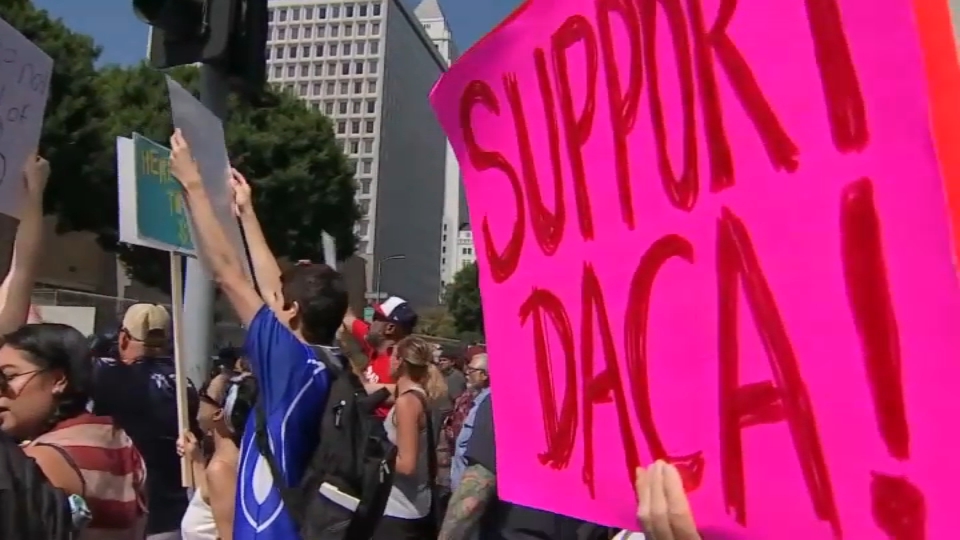An NBC Bay Area Investigation comparing a list of contracts between Santa Clara County and private companies with a list of businesses assessed by California’s Labor Commissioner for not paying their workers found more than three dozen companies.
Those 37 companies were assessed a total of $1,899,348.01 in wage theft judgments by the Department of Industrial Relations through the Labor Commissioner’s Office, according to state records. And the same companies hold a total of 70 contracts with Santa Clara County. Three of those contracts worth $2,562,343.40 were signed after those same three companies had wage theft judgments levied against them by the Commissioner of Labor.
Leticia Magbual, or Letty, as she prefers to be called, worked for one of those companies, Ali Baba Corporation. Magbual said she taught university chemistry in the Philippines before moving to San Jose in 2008. Shortly after moving to California, Magbual said she started working as a mental health counselor at Riviera Residential Adult Mental Health Facility, a position she says she received due to her scientific background. State Labor Commissioner records show Riviera is owned by Ali Baba Corporation.
In her complaint to the Labor Commissioner, Magbual said she had not received proper meal or rest breaks or sick leave.
In 2018, the California Department of Industrial Relations, through the Labor Commissioner, agreed and issued a judgment, also known as an ODA, against Ali Baba. The total judgment was for $25,772.62 and included interest and a Labor Code filing Fee. The hearing officer ruled that Ali Baba owed Letty $25,085.04 in wages and penalties.
Santa Clara County records show, despite that judgment and another one for $1,200 against Ali Baba, the company still receives more than $300,000 in taxpayer money through an annual contract to provide mental health services for the County. Betty Duong, who leads the county’s newly-formed Office of Labor Standards Enforcement, says she wants to see situations like this changed.
Local
“We’ve been actively working with procurement staff,” Duong said. “To develop processes to prevent businesses like this from getting a contract in the first place, then identifying and outing contracts and vendors that have these judgments against them.”
Duong’s position isn’t just a platform, it’s policy. Back in 2017 Santa Clara County’s Board of Supervisors approved a policy discouraging public contracts going to businesses that were not transparent about outstanding violations of wage and hour law.
But more than two years after that policy was passed, NBC Bay Area’s Investigative Unit discovered the 37 businesses with Santa Clara County contracts that have had wage and hour violations assessed against them at the Labor Commissioner’s Office. Five of those companies had formal judgments issued against them for a total of $74,322.29. Those same records show $40,679.80 of that total assessment still has not been paid to employees even after California’s Labor Commissioner ruled in the workers’ favor. The Investigative Unit found more than a hundred additional cases where employers settled prior to the final hearing, according to the state’s case management system for wage claims.
What I'm going to tell you is we're going to get to the bottom of every single complaint.
Santa Clara County Supervisor Cindy Chavez
Mustafa and Cheralynn Sabankaya founded Ali Baba Corporation in 1974 and have owned it ever since. The Sabankayas dispute the Labor Commissioner’s two rulings against them because, they say, they were never properly served notice of the cases by registered mail or other means.
“I had a very bad manager, unfortunately, which is a possibility for anybody to have,” Mustafa Sabankaya said. “We were never informed. Personally, I am the owner of the corporation. I was never informed with a registered letter that there was a case against me.”
But records maintained by the Labor Commissioner’s office show that the registered agent for the corporation, Ali Baba, Inc., was, in fact, served with, and signed, all of the notices sent out by the department. Despite the contradicting narratives, the October 2018 judgment issued against the business is a “final administrative action,” as defined by Santa Clara County’s own policy.
County officials say they never received any notification of the judgment when the Sabankayas renewed their contract one month later, and then again the year after.
Santa Clara County Supervisor Cindy Chavez, who proposed the new contract policy, says enforcement mechanisms for the new labor standards office take time to develop. But, she says, that doesn’t mean issues will go unaddressed.
“We’re going to get to the bottom of every single complaint,” Chavez said when asked how companies like Ali Baba were able to slip through the cracks.
“What are you going to do about it?” Chavez asked rhetorically. “What I'm going to tell you is we're going to get to the bottom of every single complaint.”
Duong said her department would review the list of companies compiled by the Investigative Unit and take appropriate action if necessary.
“This program really is about protecting workers and protecting the businesses,” she said. “Doing the right thing against unfair business practices.”
But those efforts won’t do much for Letty, who is still waiting to see her wages after the Labor Commissioner awarded them. She says she was told because the Labor Commissioner’s enforcement unit is so small and the backlog of unpaid assessments so long, some 40,000 workers are waiting, and it could take up to ten years before she sees a dime.
“It’s too long,” she said. “I hope I am still alive by the time they give me the money.”



